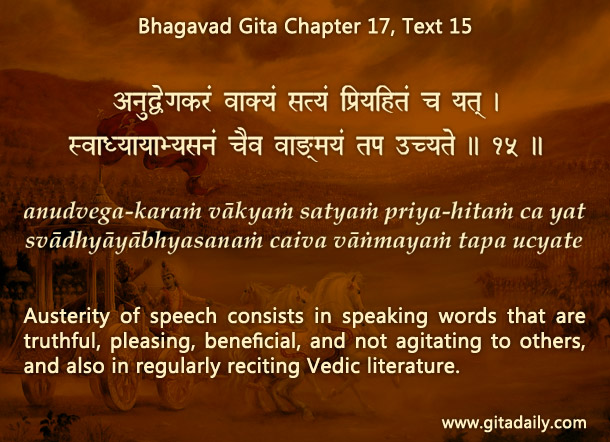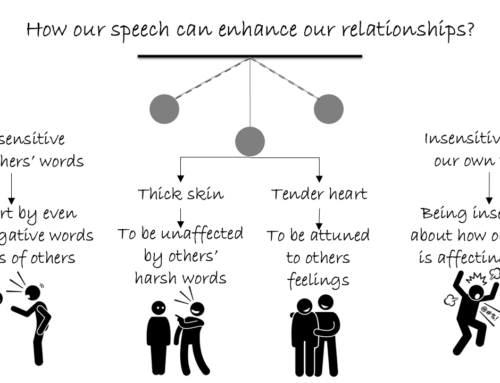Opening the mouth without opening the mind helps neither the mouth nor the mind
We all have had to sometimes bite our words. On seeing or hearing something, we made a snap judgment and spoke words that we later realized were wrong, sometimes even grievously wrong.
Such missteps happen because we voice our opinions and judgments about others without considering where they are coming from. We act based on our preconceptions about how things are meant to be or about how people are.
How can we overcome our preconceptions? By learning to open our mind before we open our mouth. This indeed is the essence of the austerity of speech recommended in Bhagavad-gita (17.15); this verse urges us to speak beneficial truth non-agitatingly and pleasingly.
To speak thus, we need to open our mind before we open our mouth.
To open our mind means to see things from others’ perspective, to try to put ourselves in their shoes, to give them a fair chance to tell their side of the story, to be ready to give them as much benefit of the doubt as we would want them to give us if situations were reversed.
Opening our mind needs effort, however. It requires that we come out of our conceptual comfort zones where things exist in convenient categories of black and white and confront discomforting realities where things exist in multiple shades of grey.
Comparatively speaking, opening our mouth is much easier – we can pat ourselves on the back for having put people in their places in our pre-fabricated compartments of black and white. However, such attitudes and actions only keep us both mentally and verbally undisciplined.
If we become ready to strive to open our minds, we learn so much about people and things; we grow in wisdom and insight; and we speak words that persuade, not alienate.
Think it over:
- Why do we have to sometimes bite our words?
- What does opening our mind mean?
- Why is opening our mind tougher than opening our mouth?
***
17.15 Austerity of speech consists in speaking words that are truthful, pleasing, beneficial, and not agitating to others, and also in regularly reciting Vedic literature.
To know more about this verse, please click on the image
Explanation of article:
https://www.youtube.com/watch?v=t7PNqlxT3ec&feature=youtu.be
Podcast:




Haribol prabhuji dandavat .
Very true .. have gone through this situation where words were spoken and then regreted later on especially when triggered by some one to get angry .. older people used to say count 1 to 10 or 100 when you are angry and want to reply or take action.
Thank you. Yes, we have to use whatever strategy works in checking our urge to burst out.
MISERY prevails in this world because mouth opens before MIND